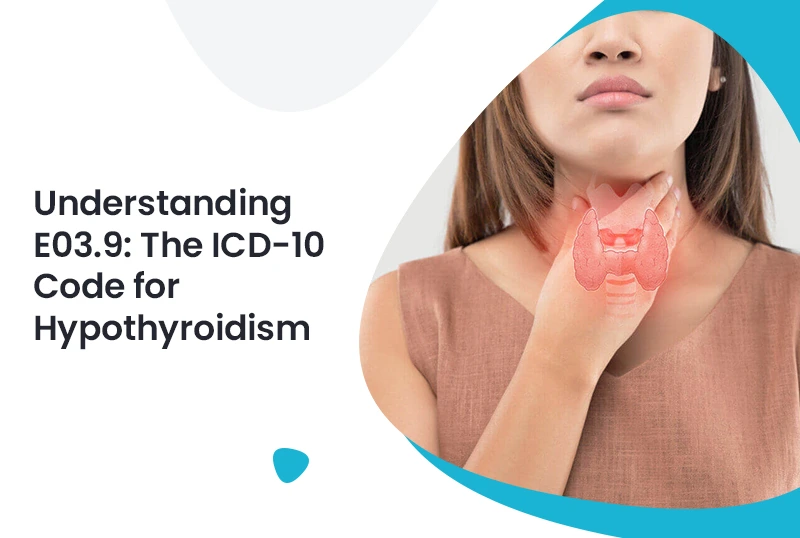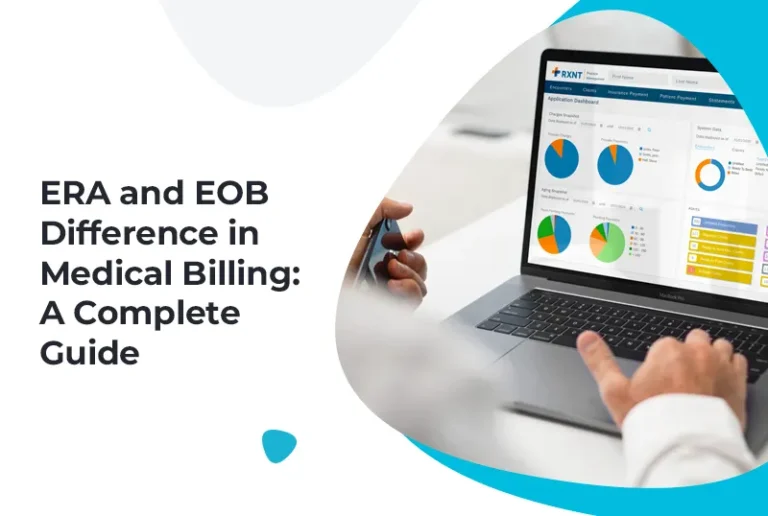When it comes to accurate medical billing and compliant documentation, one key piece of the puzzle is assigning the right diagnosis code. In endocrinology and general practice alike, hypothyroidism is a common condition that requires careful coding. The ICD-10 code for hypothyroidism plays a central role in ensuring claims are processed without delays or denials.
For practices relying on medical billing services for small practices, especially those managing high patient volumes, it’s essential to understand how and when to use E03.9 correctly.
What Is the ICD-10 Code E03.9?
The ICD-10 code for hypothyroidism is E03.9, which stands for “Hypothyroidism, unspecified.” This code is used when a patient shows clinical signs and symptoms of an underactive thyroid, but the underlying cause is not documented or confirmed at the time of the visit.
E03.9 should only be used when more specific diagnoses are not available, such as:
- E03.0 – Congenital hypothyroidism
- E03.4 – Atrophy of thyroid (acquired)
- E06.3 – Autoimmune thyroiditis (Hashimoto’s disease)
Since payers often prefer precise coding, using E03.9 excessively may raise red flags unless there is valid documentation supporting its use.
Understanding Hypothyroidism in Clinical Practice
Hypothyroidism occurs when the thyroid gland fails to produce enough hormones to meet the body’s needs. Common symptoms include:
- Fatigue
- Cold intolerance
- Constipation
- Depression
- Weight gain
- Slow heart rate
- Dry skin
While some causes like autoimmune diseases (e.g., Hashimoto’s) are easy to identify, others may remain undiagnosed without full testing. When lab tests are pending or patient history is unclear, E03.9 provides a temporary billing solution until a more specific diagnosis is possible.
When to Use ICD-10 Code E03.9
The ICD-10 code for hypothyroidism is a fallback option in coding. Here are common scenarios where E03.9 is appropriate:
- First-time visits where hypothyroidism is suspected based on symptoms
- Lab results are pending and a specific etiology is not yet confirmed
- The physician has documented hypothyroidism without specifying the type
Using this code without documentation to back it up can lead to denials or post-payment audits, especially from Medicare or commercial insurers. That’s why many providers work with (RCM) services to flag any red flags in diagnosis coding before claims are submitted.
How E03.9 Affects Medical Billing
Accurate coding directly affects claim processing and reimbursement. Using E03.9 when a more specific code is appropriate can lead to:
- Claim denials
- Request for additional documentation
- Delayed payments
- Audit triggers
A well-managed revenue cycle depends on selecting the most specific code supported by the medical record. Coders should always review provider notes carefully and query the physician if there’s ambiguity about the diagnosis.
Read More: Group Therapy Procedure Guidelines – CPT Code 97150
Documentation Guidelines for Hypothyroidism Coding
To ensure compliance and prevent errors, the following documentation should be included when using E03.9:
- Description of symptoms (fatigue, cold intolerance, etc.)
- Relevant physical exam findings
- Any lab tests ordered (TSH, Free T4, T3)
- Absence of underlying specific thyroid condition
If you’re unsure whether E03.9 applies, consider coding queries or using electronic health record alerts. It’s always better to be cautious than to risk compliance issues.
Common Procedures & CPT Codes with E03.9
The ICD-10 code for hypothyroidism often pairs with specific procedure codes in billing:
- 84443 – TSH (thyroid stimulating hormone)
- 84439 – Free T4 test
- 83036 – T3 uptake
These lab procedures help diagnose and monitor thyroid function and provide support for using E03.9 in claims. Be sure the diagnosis is listed as primary to avoid denials due to mismatched CPT and ICD-10 codes.
Unspecified Codes & Insurance Risk
Payers may view unspecified codes as lack of due diligence in documentation. Overuse of E03.9 can impact:
- Provider profiles
- Risk adjustment scores
- Payer audits
Moreover, using the wrong code can breach the TOS full form in medical billing—Terms of Service—which outlines rules for ethical and compliant billing. Ensuring that E03.9 is only used when justified protects the provider and maintains billing integrity.
Best Practices for Coding Hypothyroidism
- Always Review Documentation
Ensure symptoms and clinical notes support the use of E03.9. - Use Specific Codes When Available
If lab results indicate autoimmune or surgical causes, update the diagnosis accordingly. - Implement RCM Tools
Working with revenue cycle management services can automate code audits and reduce billing errors. - Educate Providers
Encourage clinicians to be specific in notes and diagnoses to reduce reliance on unspecified codes.
Final Thoughts
The ICD-10 code for hypothyroidism, E03.9, plays a key role in billing workflows. While it offers flexibility when a diagnosis is not confirmed, it must be used with caution and proper documentation. Using E03.9 responsibly helps ensure accurate billing, regulatory compliance, and uninterrupted revenue flow.
For clinics and providers managing high patient loads, especially those using medical billing services for small practices, understanding this code is vital. Partnering with expert coders and billing teams can make the difference between claims paid quickly and those that end up in denial queues.
Need help with optimizing your claims, audits, or compliance? Discover how our revenue cycle management services at Precision Hub can streamline your operations and reduce coding errors.
FAQs (Frequently Asked Questions)
Q1. What does the ICD-10 code E03.9 mean?
E03.9 is used to code for “hypothyroidism, unspecified” when no specific type or cause is identified in the medical record.
Q2. Can E03.9 be used for patients awaiting lab results?
Yes, if a patient presents symptoms of hypothyroidism and lab confirmation is pending, E03.9 can be temporarily used.
Q3. Will insurance pay for E03.9?
Most insurers will reimburse claims with E03.9, but they may request further documentation to justify its use.
Q4. How can I avoid overusing E03.9?
By encouraging specific diagnosis documentation and using coding support tools or expert services, providers can reduce dependence on unspecified codes.
Q5. What happens if I use E03.9 too often?
Frequent use may trigger audits or payment delays, especially from Medicare or private payers focused on diagnosis specificity.







